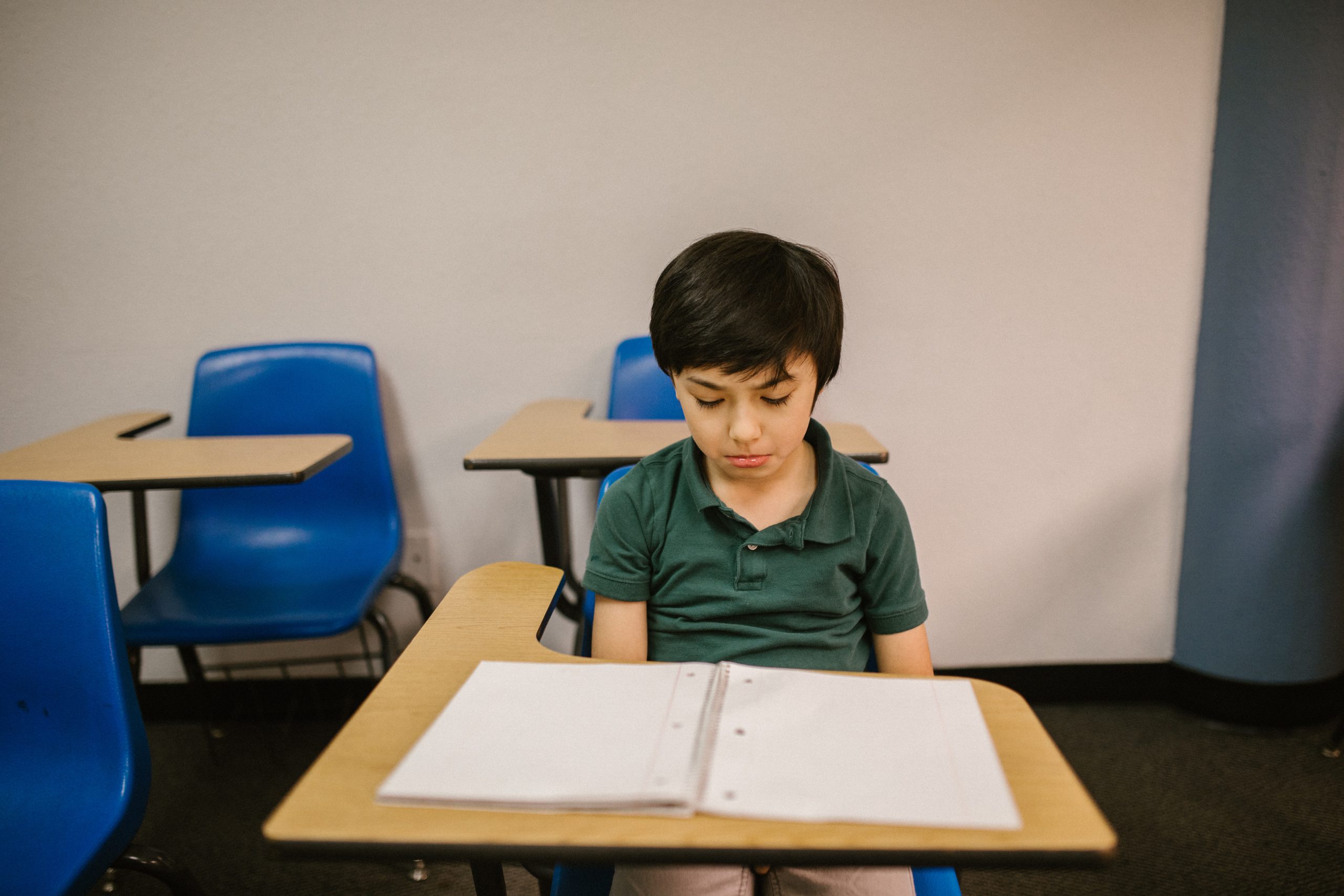A school is a place of excitement, curiosity, and relationship building.
However, many students do not have this experience if they are at the wrong school. Learning can become an uphill battle when students are not at the school that best suits their needs and interests.
But how do you know if you need to start searching for a new educational setting for your child? Here are three signs it’s time to switch schools.
1. It’s Time to Switch Schools When…Your Child Is Disengaged
One key indicator that your child may not be in their ideal learning environment is their level of engagement at school. This is the attention, curiosity, optimism, interest, and passion your student has for learning. This can be hard to pick up on as parents, especially when you can only monitor your child after the school day ends. However, if teachers notice a lack of engagement in class, they may reach out to you.
Lack of engagement in class may look different for each student. Still, it can include having trouble paying attention, behavioral outbursts, or lack of motivation. There are several signs of an unengaged student that you can notice at home, such as constantly wanting to skip school, ongoing difficulty learning the material, or a significant change in their behavior.
There are several reasons a student may be disengaged at school, such as stress, feeling unwelcome, unsafe, or lacking meaningful connections with other students. These are strong indicators that your child might have more tremendous success at a different school.

2. It’s Time to Switch Schools When…Your Child Is Uninvolved
Does your child show any interest in joining clubs, sports teams, or extracurricular activities at their school? If they do, great! That indicates that they are comfortable enough with their school community that they want to become more immersed in it.
If not, this is another red flag that they may not be at the right school for them. Spending time with their peers from school helps create a positive learning experience. Not wanting to get involved with the school community can negatively impact their overall experience at school.
Additionally, how does your child feel about school-hosted events? First off, understand that it’s normal for a student to be hesitant about a social event. Remember the awkwardness of standing on the gym floor waiting to be approached at the school dance? However, it is essential to recognize this lack of interest, as it could mean they are struggling to make positive connections with their teachers or other students.
School involvement can make your student feel a sense of belonging, so encourage your child to get involved! If they push back, it might be a sign to start looking for other school options.

3. It’s Time to Switch School When…Your Child Receives Poor Grades
What are your child’s grades like? Clearly, poor grades do NOT mean your child is unintelligent. Grades can often be a sign of whether or not your student is at the right school.
Poor grades can mean several things:
- The teaching style may not mesh well with their learning style. For example, if the student is a hands-on learner, being taught via reading and listening may not make sense in their brain. This causes a disconnect and will likely be reflected in their grades.
- The content might be too easy. When students are not challenged, they lose the motivation to try. Even brilliant students may receive poor grades.
- The rigor of the curriculum may be too difficult. Some schools offer a more rigorous and college-prep-oriented learning curriculum than others, which doesn’t suit all students. However, if the rigor is too high and the material moves fast, some students will continue to fall behind.
These can be indicators that their poor grades do not reflect their intelligence or effort. Instead, the school may not be the best learning environment for them.

Other Red Flags That It’s Time To Switch Schools
- Your child does not mention any friendships they have formed.
- You consistently hear negative comments about their teachers.
- They are not completing their homework.
- They feel down when they are going to or coming home from school.
- They show an interest in an activity that isn’t offered at their current school (STEM, performing arts, robotics, foreign languages, etc.).
- They show unusual tiredness when they come home from school.

When To Take Action
Before making any important decision about switching schools, talk to your child! It’s their education, so it’s essential to have an open and honest conversation about their school experience to decide whether or not they want to switch schools.
If, as a family, you choose to move schools, it’s also important to be mindful of the time of year you make the switch. Sometimes pulling your student out of school mid-semester and transferring them into a new school can sometimes cause more harm than good. If the curriculum is not the same at their new school, they may fall behind their peers.
Not to mention, it’s tough to be a new kid! Forming friendships can be more difficult in the middle of the year versus the beginning of the fall or spring semester.
To make sure your child has a smooth transition, make sure to communicate with both your current school and all prospective schools to make sure your child will be set up for success.
How to Find a Better Fit School
Every parent wants their child to succeed, and this starts with being in the right learning environment. It’s good to keep an eye out for these key indicators that suggest your child may not be in the right educational setting. If you notice these tendencies in your child, it’s time to search for a new school. And that’s where Schola comes in.
Every child deserves to be in an educational environment where they can thrive, which is Schola’s #1 goal. We help families discover, connect, and enroll their children in the ideal educational setting. On Schola.com, you can take ScholaMatch™ to find schools near you that meet your students’ needs, interests, and learning styles. Switching schools can be challenging, so we’re here to help your family every step of the journey.
When looking for a better fit school, keep these factors in mind:
- Community and Values: Does the school reflect your family’s values? A school’s mission, vision, and involvement in the community can play a crucial role in whether it’s the right fit.
- Learning Style Compatibility: Does the school offer teaching methods that align with your child’s learning style (e.g., hands-on learning, visual aids, or project-based learning)?
- Student Support Services: Look for schools that provide individualized support, such as tutoring, counseling, or special education services, if needed.
- School Culture: Ensure the school fosters an inclusive, safe, and positive environment where your child can feel comfortable and supported.
- Extracurricular Opportunities: Find a school that offers activities, clubs, and sports that match your child’s interests and hobbies.
- Class Size and Teacher Engagement: Smaller class sizes and engaged teachers can make a huge difference in personalized attention and your child’s connection to learning.
- Curriculum Rigor: Make sure the school offers the right balance of academic challenge for your child, whether it’s a college-prep curriculum or a more flexible approach.
- Diverse Program Options: Some schools focus on specialties such as STEM, performing arts, foreign languages, or vocational training. Ensure the school provides programs aligned with your child’s strengths and passions.
- Parent-Teacher Communication: A strong communication line between parents and teachers is vital for staying involved and supporting your child’s success.

Step by Step on How to Switch Schools
Switching schools is a big decision, but it doesn’t have to be overwhelming. Here’s a step-by-step guide to help you navigate the process smoothly:
- Talk to Your Child
Before anything else, have an open and honest conversation with your child about why switching schools might be beneficial. Get their input, and discuss any concerns or preferences they have about the new school. - Research New Schools
Use tools like ScholaMatch™ on Schola.com to find schools that align with your child’s needs and interests. Review the school’s programs, facilities, and extracurricular offerings to ensure they’ll thrive in the new environment. - Schedule School Tours or Open Houses
Visit the prospective schools to get a feel for their environment. Bring your child along so they can explore the campus, meet teachers, and get a sense of whether it feels like the right fit. - Gather Required Documentation
Once you’ve selected a new school, make sure to gather all the necessary documentation, such as your child’s transcripts, immunization records, proof of residency, and any other enrollment forms required by the school. - Coordinate with Both Schools
Before withdrawing your child from their current school, communicate with both schools to ensure a smooth transition. Find out if there are any transfer requirements or deadlines, and make sure the new school has all the information they need to place your child in the appropriate classes. - Prepare Your Child for the Transition
Help your child adjust to their new school by encouraging them to get involved in activities and make new friends. It can also be helpful to talk about any nerves or concerns they may have about being the “new kid.”
Setting Your Child Up for Long-Term Success
Switching schools can be a big decision, but it’s often the key to helping your child thrive. By recognizing the signs and taking action, you can find an environment where they feel engaged, supported, and motivated to succeed. Every child deserves to be in a school that fits their needs, and with Schola, you can easily find the right match to set them up for success.

